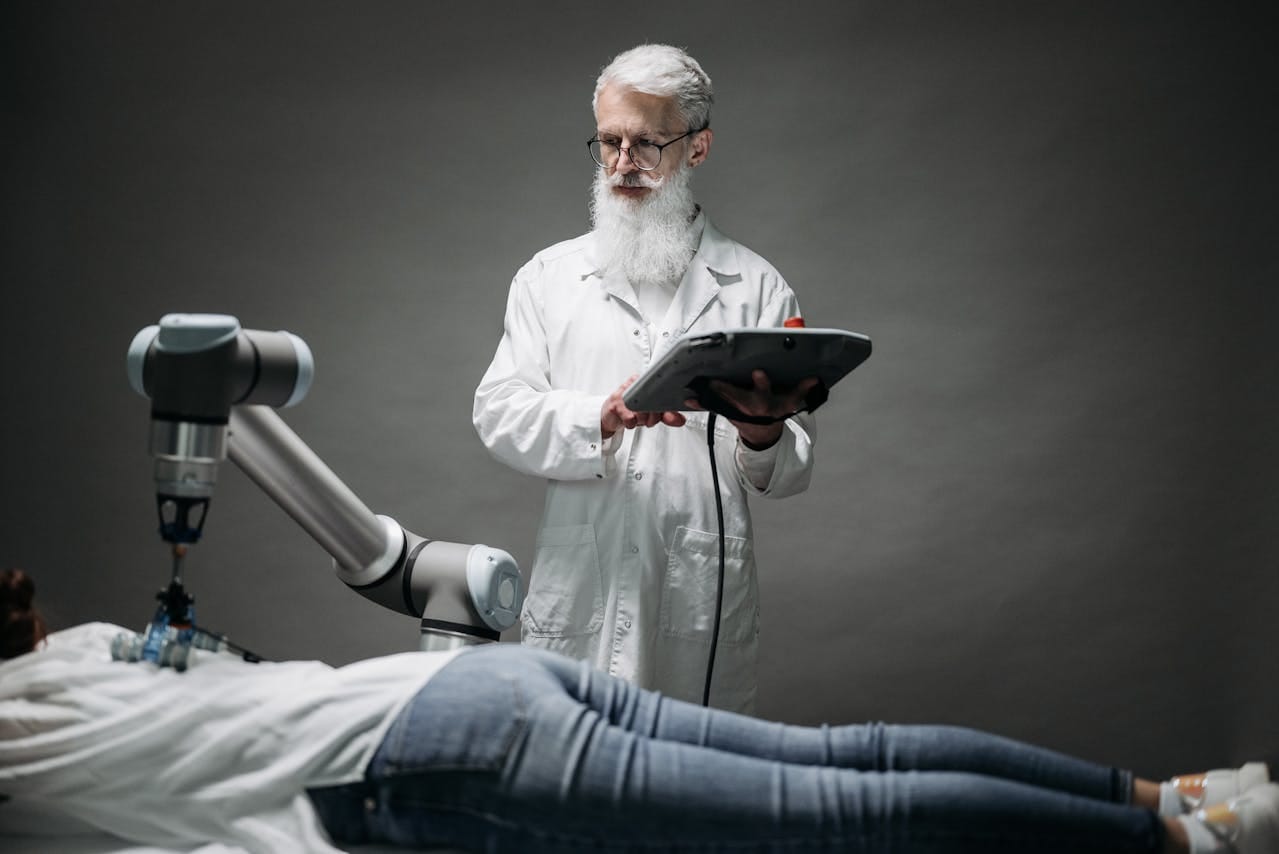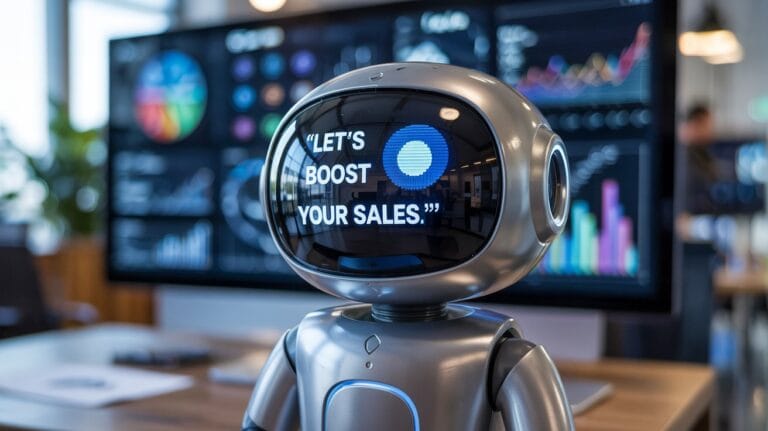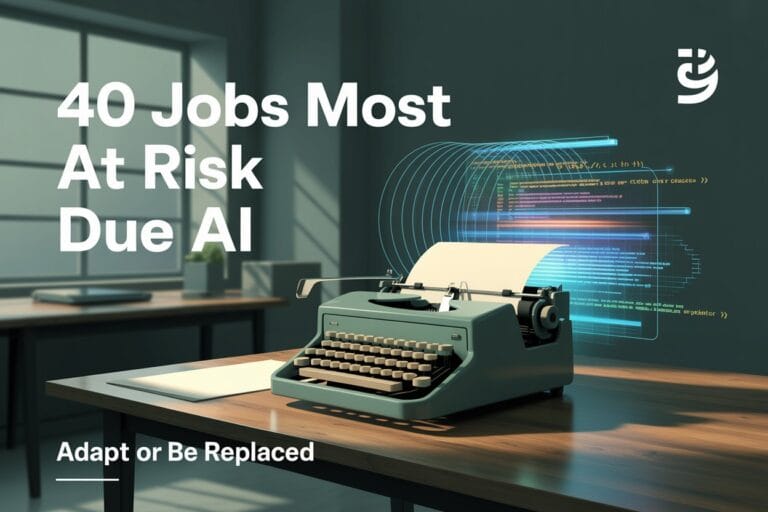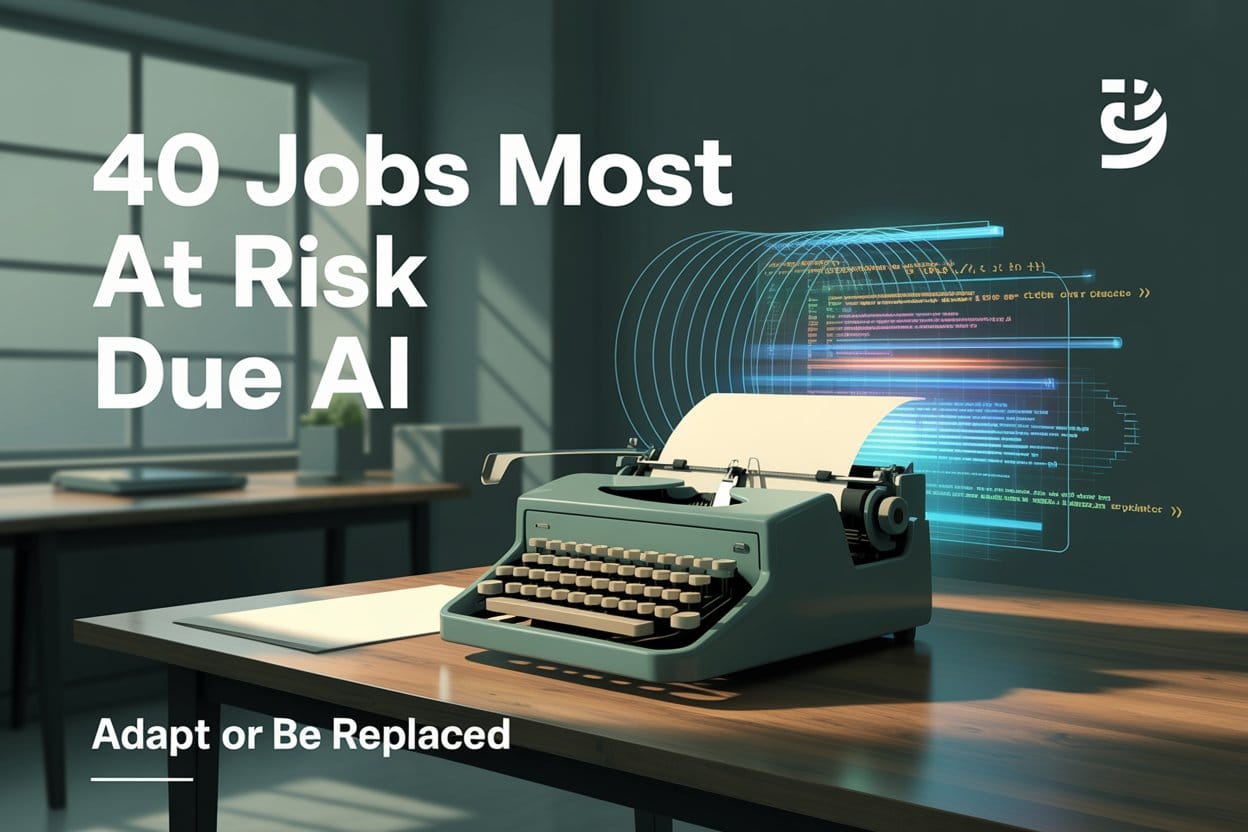
Artificial Intelligence (AI) is now transforming almost every aspect of our lives—Microsoft just released one of the most consequential reports on AI’s impact on jobs: 40 jobs most at risk due to AI. And that’s because it’s not based on predictions or trends or forecasts. It’s based on hundreds of thousands of conversations on how people are actually using AI in their jobs. And I think it’s a pretty telling and kind of shocking study. So on today’s post, we’re going to be talking about the 40 jobs most at risk due to AI that Microsoft’s report says could be displaced first by AI.
To conduct this study, Microsoft researchers anonymously and securely analyzed 200,000 Bing Copilot user chats.
Microsoft Senior Researcher Kiran Tomlinson stated,
“Our study aims to understand which job categories can productively use AI chatbots. It includes an ‘AI applicability score’ that shows how much overlap exists between AI capabilities and job tasks. This score indicates how AI can change the way work is done — not necessarily replace jobs altogether. Our research reveals that AI supports many tasks — especially those involving research, writing, and communication — but it doesn’t mean it can fully take over any single profession.”
Also Read:- Top 10 AI Tools for Research in 2025
40 jobs most at risk due to AI.
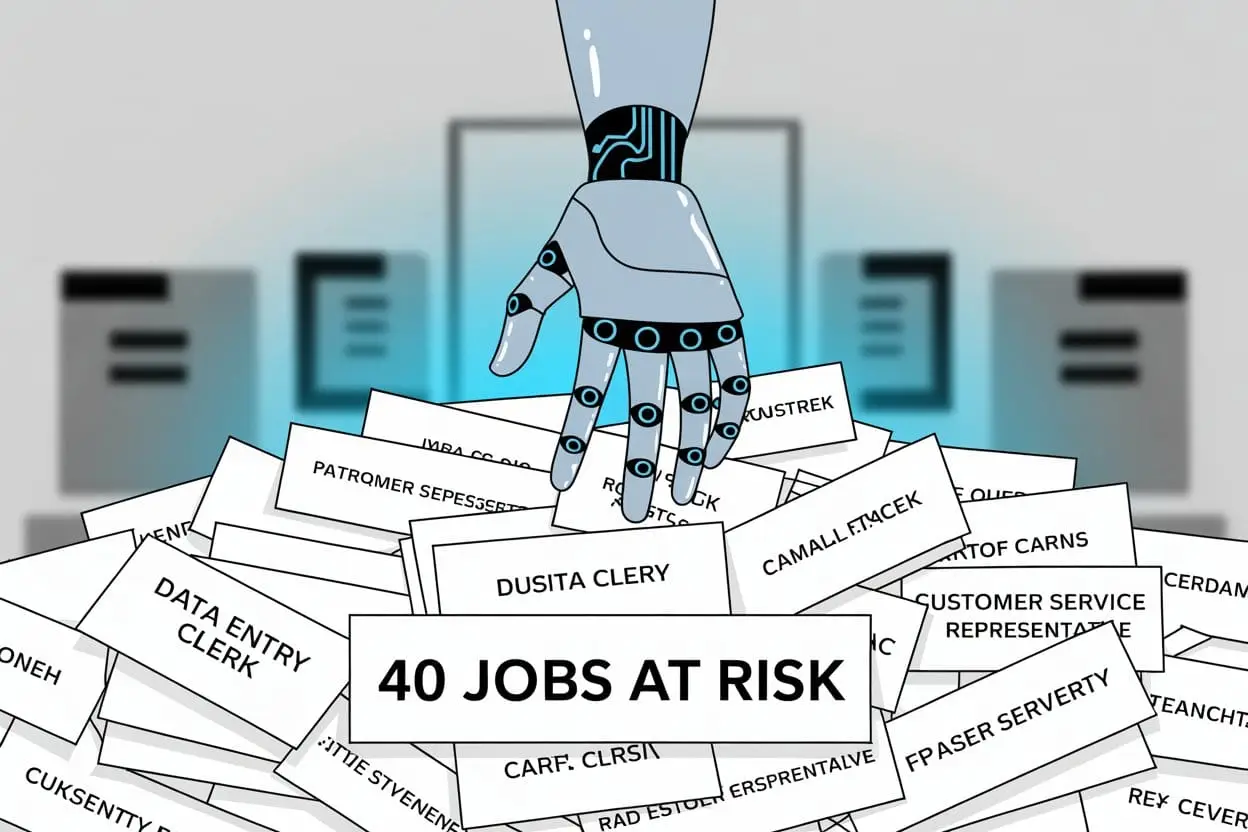
Here is the list of jobs that, according to Microsoft, are most likely to be affected by AI:
- Interpreters and Translators
- Historians
- Passenger Attendants
- Service Sales Representatives
- Writers and Authors
- Customer Service Representatives
- CNC Tool Programmers
- Telephone Operators
- Ticket Agents and Travel Clerks
- Broadcast Announcers and Radio DJs
- Brokerage Clerks
- Farm and Home Management Educators
- Telemarketers
- Concierges
- Political Scientists
- News Analysts, Reporters, Journalists
- Mathematicians
- Technical Writers
- Proofreaders and Copy Markers
- Hosts and Hostesses
- Editors
- Business Teachers (Postgraduate)
- Public Relations Specialists
- Demonstrators and Product Promoters
- Advertising Sales Agents
- New Accounts Clerks
- Statistical Assistants
- Counter and Rental Clerks
- Data Scientists
- Personal Financial Advisors
- Archivists
- Economics Teachers (Postgraduate)
- Web Developers
- Management Analysts
- Geographers
- Models
- Market Research Analysts
- Public Safety Telecommunicators
- Switchboard Operators
- Library Science Teachers (Postgraduate)
Looking at the list above, it’s clear that AI has the greatest impact on those jobs that chatbot tools like ChatGPT and Gemini can perform most effectively — tasks involving language, communication, content generation, and basic data processing.
Also Read – 10 Best Laptop to buy in 2025
Least affected jobs by AI
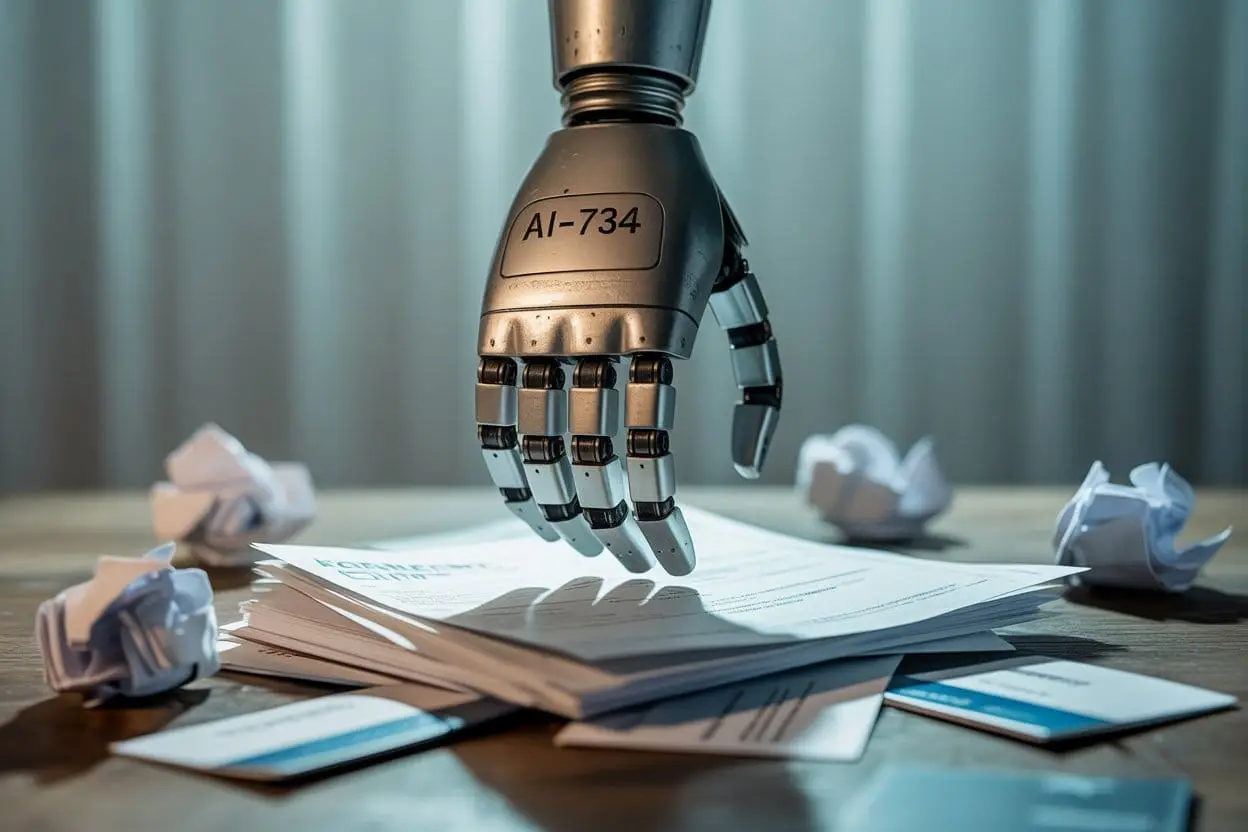
Here is the list by Microsoft’s study, are least affected jobs by AI — mainly because they require manual labor, physical presence, or specialized human care that AI tools like ChatGPT or Gemini cannot easily replicate:
- Dredge Operators
- Bridge and Lock Tenders
- Water Treatment Plant Operators
- Foundry Mold and Core Makers
- Rail-Track Laying and Maintenance Equipment Operators
- Pile-Driving Operators
- Floor Sanders and Finishers
- Orderlies
- Motorboat Operators
- Logging Equipment Operators
- Paving, Surfacing, and Tamping Equipment Operators
- Maids and Housekeeping Cleaners
- Roustabouts (Oil and Gas)
- Roofers
- Gas Compressor and Gas Pumping Station Operators
- Helpers – Roofers
- Tire Builders
- Surgical Assistants
- Massage Therapists
- Ophthalmic Medical Technicians
- Industrial Truck and Tractor Operators
- Supervisors of Firefighters
- Cement Masons and Concrete Finishers
- Dishwashers
- Machine Feeders and Offbearers
- Packaging and Filling Machine Operators
- Medical Equipment Preparers
- Highway Maintenance Workers
- Helpers – Production Workers
- Prosthodontists
- Tire Repairers and Changers
- Ship Engineers
- Automotive Glass Installers and Repairers
- Oral and Maxillofacial Surgeons
- Plant and System Operators (All Other)
- Embalmers
- Helpers – Painters, Plasterers
- Hazardous Materials Removal Workers
- Nursing Assistants
- Phlebotomists
These roles are less likely to be replaced by AI due to their hands-on nature, physical demands, or human-centric care tasks, where technology has limited or no reach — at least for now.
From this list, it’s clear that AI has the highest impact on jobs that involve tasks easily handled by tools like ChatGPT and Gemini — such as writing, communication, analysis, or repetitive digital tasks.
Conclusion
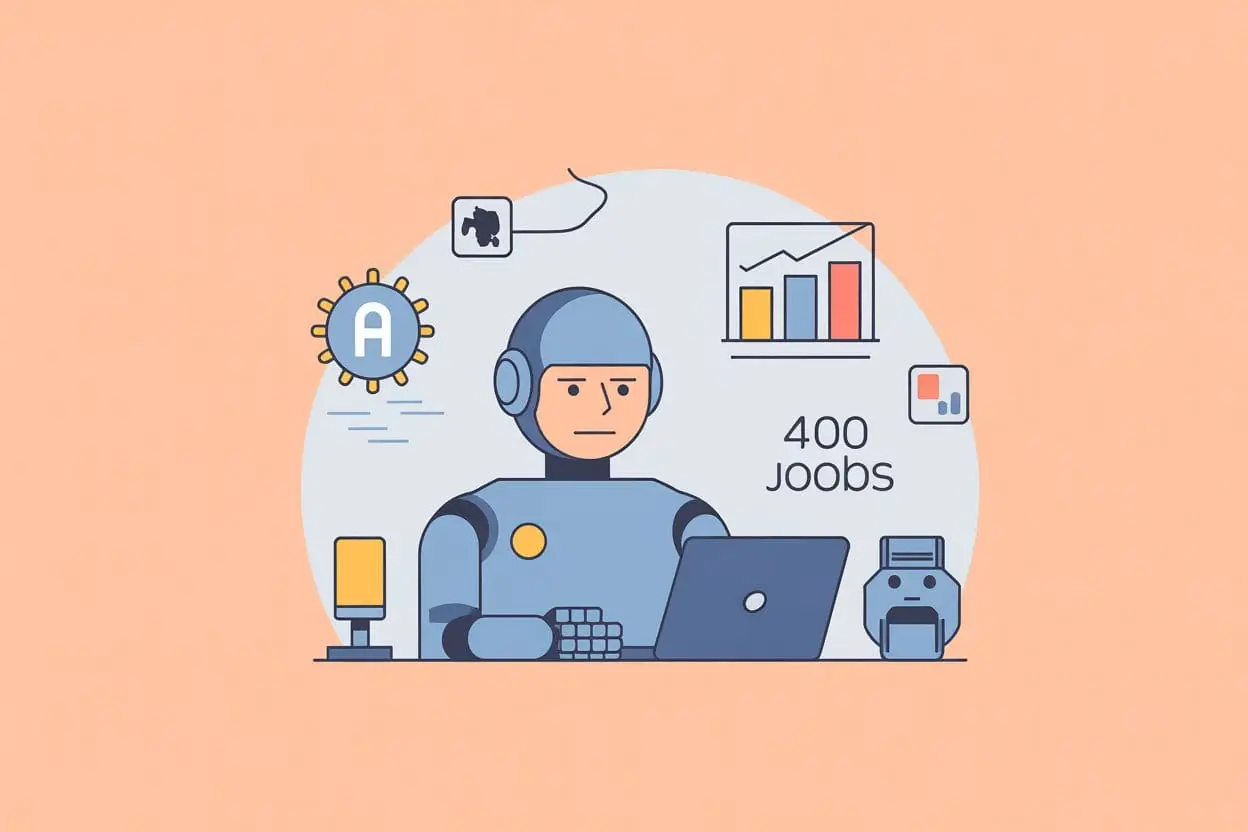
One thing is clear: this study does not claim that AI will completely eliminate all these jobs. However, it does show that AI can handle or assist with certain tasks within these professions. Even the jobs that are currently less affected might eventually be touched by AI in the future.
The research deliberately avoids making predictions about which jobs will grow or decline. But if you’re interested in understanding how AI is changing the way we work today, this report offers valuable insights.

